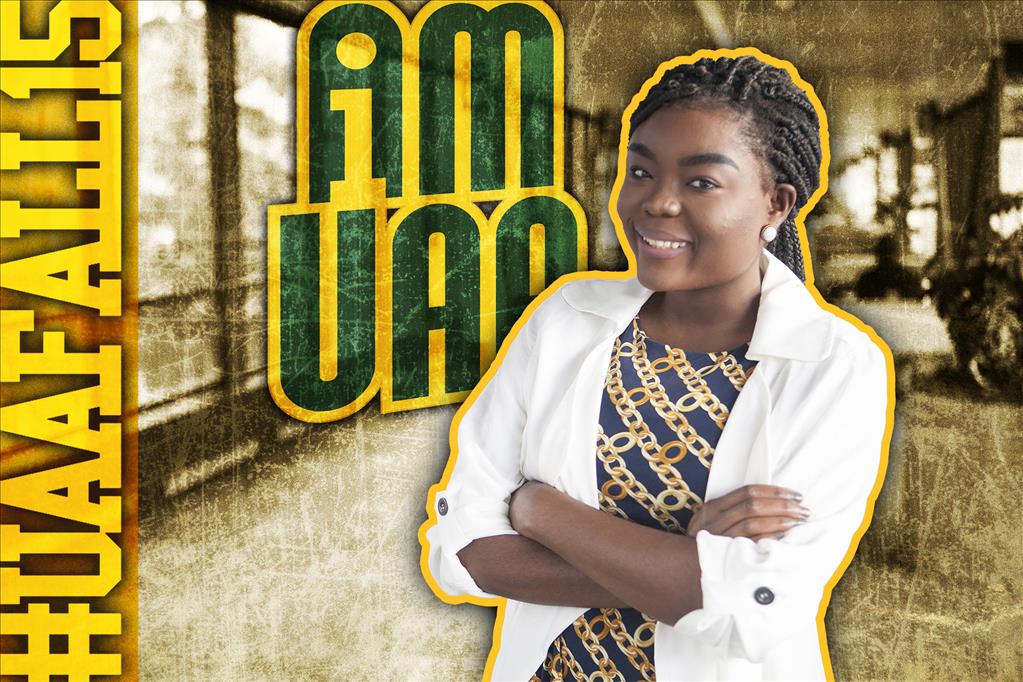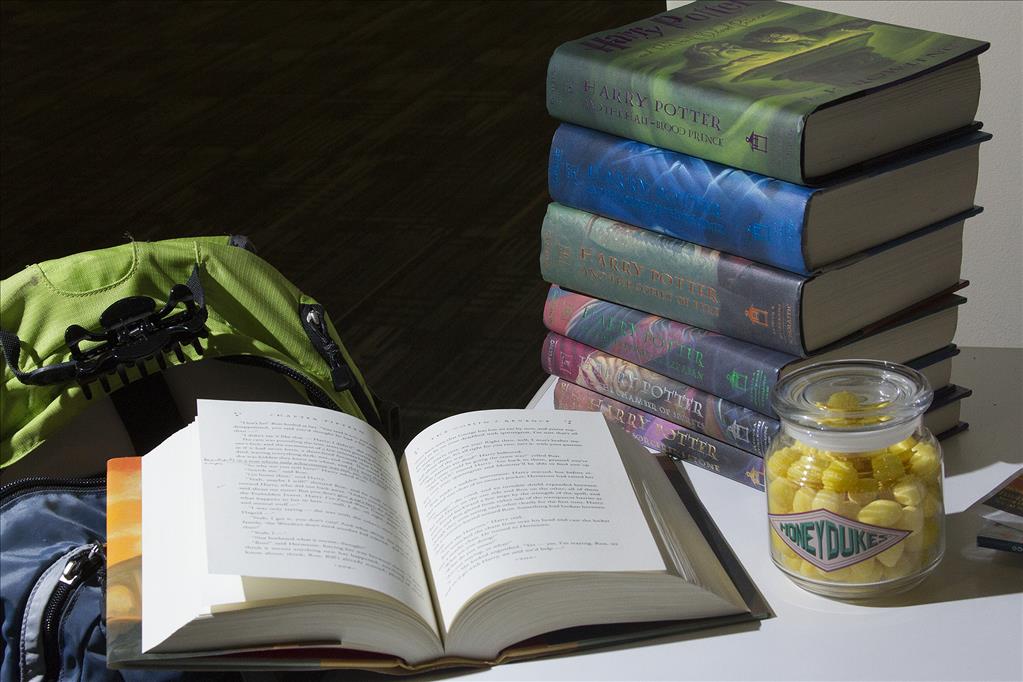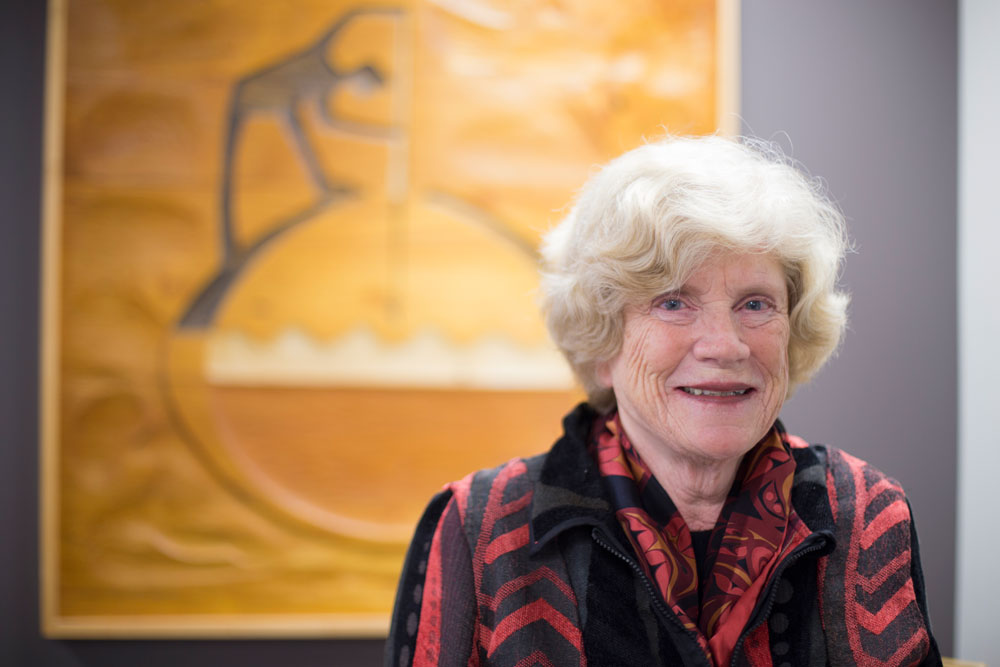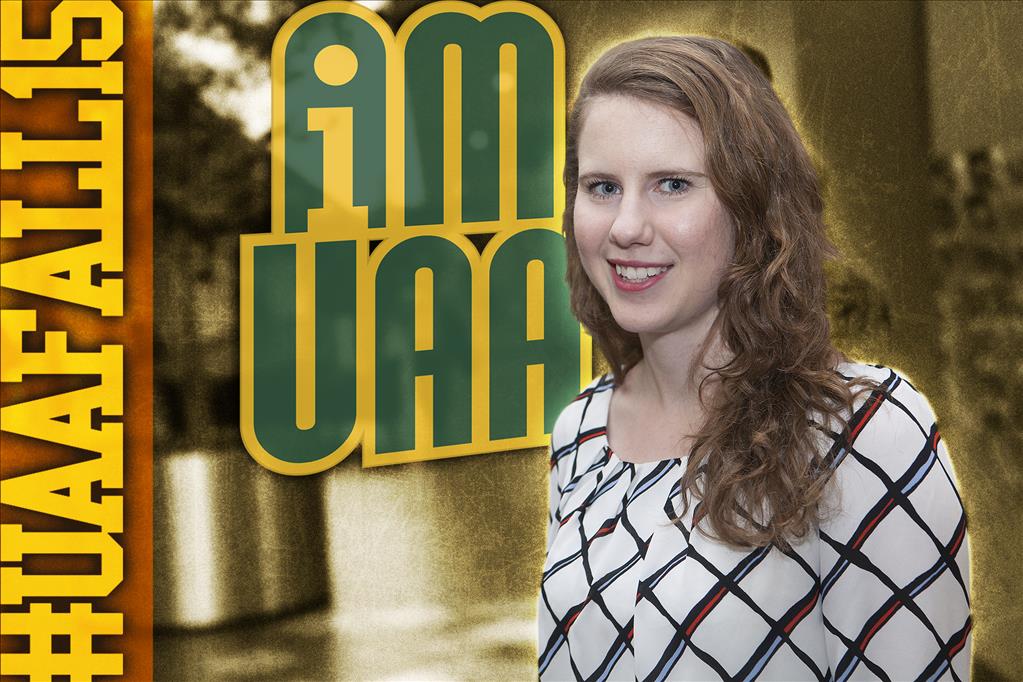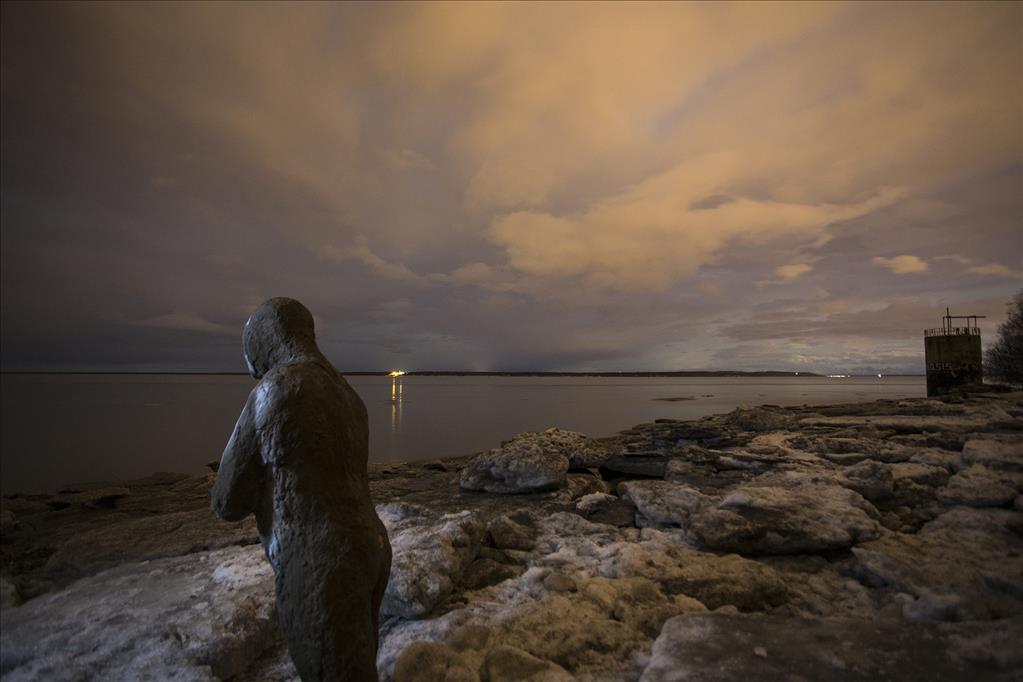I AM UAA: Rachel Bedsworth
by Kathleen McCoy |
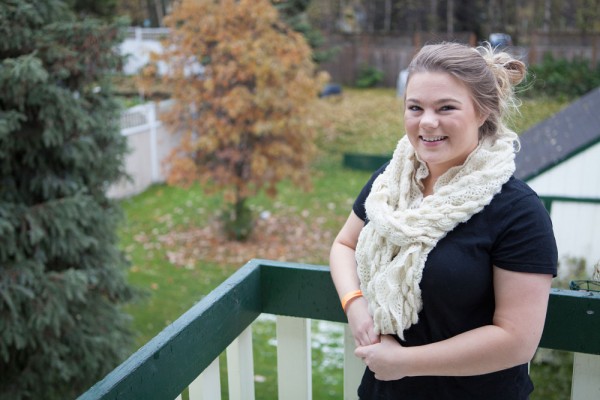
Rachel Bedsworth on the back porch of her current foster home. She's a freshman at UAA, a leader and a scholarship winner. (Photo by Philip Hall/UAA)
Given half a chance, Anchorage-born Rachel Bedsworth might not have selected the particular path she walks.
Since age 6, Rachel has been in foster care. The real clincher? In just 12 years, she's had 46 different placements. How does a kid even survive a revolving door like that?
Rachel, 18, managed. After a disastrous ninth grade that landed her in a group home for girls, Rachel fought her way back to a successful high school graduation from Dimond High. She resettled in a caring foster home and launched herself into college at UAA.
Along the way, she took on a significant leadership role in a statewide organization that advocates for foster youth, called Facing Foster Care in Alaska. Since 2003, FFCA has been dedicated to supporting youth and improving the foster care system. Rachel serves as Anchorage's representative. If anybody knows the foster-care drill, Rachel does.
A leader is born
Fittingly, on August 30, just as UAA's education engines were revving up for fall semester, Rachel's good work earned her a "Summer of Heroes" designation and a $1,500 college scholarship. The honor came from a youth recognition program sponsored by the Boys & Girls Clubs - Alaska and Alaska Communications, which works in broadband and IT-managed services.
College is important to Rachel; she already has a higher degree in mind. She plans to build on her youth advocacy skills by adding credentials that will increase her effectiveness in the policy-making realm. Much of her drive for this work comes from surviving Alaska's foster care system for more than a decade.
"I want to keep on working with foster youth," she said. "I want them to know they have a future and it's not a dead end from here."
Rachel is petite and bubbly. She's comfortable telling her story because she believes it will make a difference for other young people facing a path like hers.
The need for help is astonishing. "There are 2,600 foster youth and only 1,400 homes," Rachel said. "That's a whole 1,000 kids that are in homeless shelters, living with their parents [in challenging circumstances] or out on the streets."
So how does Rachel help, exactly? Mostly by really relating to displaced teens. FFCA hosts quarterly retreats when foster youth are flown into Anchorage from around the state. People like Rachel help organize them, and participate by sharing their own stories.
"We bring in guest speakers, we learn stuff about what we need to do, like for life. We learn about getting a job, about how to take care of ourselves, even hygiene. It's like a support group. If you're going through stuff, we're here."
Finding FFCA was an important anchor for Rachel.
Telling her own story
"Before I met [other foster youth through the FCAA], I thought I was the only one; it was always just me. That made it so awkward. Just to spend the night at a friend's house, I'd have to get permission from this person, and this person and this person. If you want to leave the Anchorage bowl, you have to get papers signed. Even just to Wasilla; you can't just go!"
Meeting other foster youth helped her realize others faced and survived the same awkward challenges. Now the state's foster youth have formed a community to help each other. Rachel capitalizes on all her own bumps and bounce backs when she empathizes with other teens in foster care.
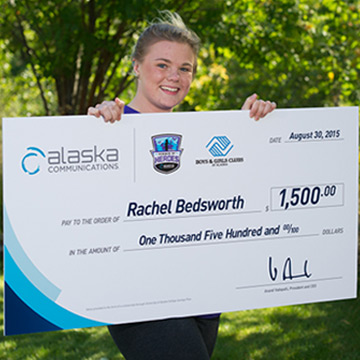
Bedworth was declared a "Hero of Summer" and earned support for college for her leadership role with Alaska foster youth. (Photo courtesy of Alaska Communications and Boys & Girls Clubs - Alaska.)
"We're all on Facebook," Rachel said. "They call me, every single day! 'Rachel, talk to me, Rachel, Rachel, Rachel!' But it's fine with me because I've been in their situation. After seeing what I have been able to get done, I will be here for you, just like people were here for me."
She remembers her hardest times, at the group home her freshman year of high school. Or even her own belligerent attitude in many foster homes.
"I thought I was so cool, like I can stay out until 11 at night. I really wasn't allowed to, I just did it. I was so stupid. It's embarrassing sometimes, to think about what happened. But you can't overcome something until you realize what you did wrong."
Aiming at policy improvements
You might guess all these realizations would lead Rachel to social work; not so.
"I do not want to take kids out of their home," she said. "I don't want to be a counselor sitting their taking notes and listening. It would just make me cry every time."
Her goal is to influence policy. She's had good social workers and not-so-good social workers, she says. She believes these professionals sometimes arrive ill-equipped for the job and become quickly overwhelmed by caseloads of 30-40 foster youth. That can make a huge difference in their ability to work with someone like Rachel.
"You feel like you're just shuffling in so they can check off a box," Rachel said. "They need to see you every month. They usually squeeze it in toward the end of the month. You get a call, and they tell you, 'I need to see you tomorrow,' whether it's convenient for you or not. You're not a priority; it's just mandatory."
And those meetings are unsatisfying. "It's just, "Are you doing OK? Need anything? OK, see you next month."
So more social workers, and more training for them, are goals Rachel champions. She often longed for something more personal, like getting a text from a social worker inviting her to have coffee and share some conversation. That would have had some meaning, she says.
The next big challenge: College
As tough as some of her experiences have been, Rachel has had good times, too. Of her current home placement with Amanda Metivier, executive director of FFCA, her face glows when she says, "I love this place! I love these people!"
She's enrolled at UAA taking courses in biology, English, math and a freshman guidance class. She works part time in a local mall; most of her expenses are handled by the state.
Therein lies her latest concern.
"I'm stressing because I got a C in my biology class," she said. "There's funding pressure. If I don't have a 2.0 GPA or better, or something like that, I don't get my funds. So I can't mess up. I have no money for college. If I do mess up and fail a class, that would send me off really bad."
And so, the challenges of the adult world continue.
 "I AM UAA: Rachel Bedsworth" is licensed under a Creative Commons Attribution-NonCommercial 4.0 International License.
"I AM UAA: Rachel Bedsworth" is licensed under a Creative Commons Attribution-NonCommercial 4.0 International License.










